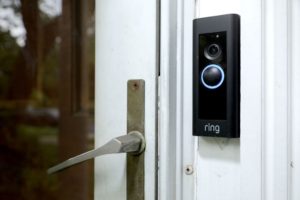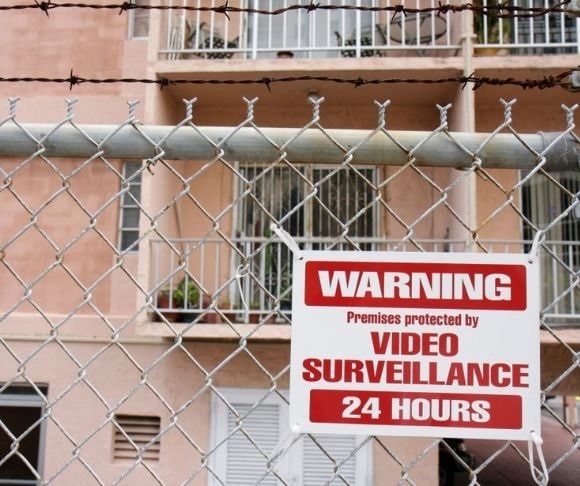With the support of a new district attorney, the San Francisco police department wants to implement a fresh plan to crack down on crime. However, the Democrat leadership of one of the most crime-ridden cities in America is being called authoritarian over a proposed surveillance program that gives the police department real-time access to private security systems. Does the policy amount to a violation of the Fourth Amendment, even if well-intended?
[substack align=”right”]
Rising Crime in San Francisco
In June, The former district attorney of San Francisco, Chesa Boudin, was recalled after wide and aggressive criticism that he failed to make the city safe. Criminal offense rates rose during his tenure, especially hate crimes against Pacific Islanders and Asian Americans, which increased by 567%. However, the Democrat-led local government now realizes ditching the DA isn’t enough to fix the problems, and his replacement, Brooke Jenkins, might be even worse.
Jenkins wants to crack down on lawbreaking, but her methods may be constitutionally questionable. She has vocalized her support for police officers accessing live private security cameras. Because the intent of this new action is to curb crime and identify and arrest suspects, the new district attorney’s heart may be in the right place, but do the ends justify the means?
Surveillance Program
This proposed policy aims to monitor “significant events with public safety concerns” and ongoing misdemeanor and felony investigations. It would also allow police officers to “gather and review historical video footage for the purposes of conducting a criminal investigation.” The “private cameras” accessible with this policy include, but are not limited to, residents’ Ring doorbell cameras and those owned and operated by private businesses.

(Photo by Chip Somodevilla/Getty Images)
The new DA is adamant that “this policy can help address the existence of open-air drug markets fueling the sale of the deadly drug fentanyl.” In a letter to city supervisor Aaron Peskin expressing support for the program, Jenkins asserted that “mass organized retail theft, like we saw in Union Square last year, or targeted neighborhood efforts like we’ve seen in Chinatown is another area where the proposed policy can help.”
All the crimes mentioned by Jenkins are significant issues that must be addressed. But are more cameras or more access the answer? Albert Fox Cahn, the Surveillance Technology Oversight Project executive director, says no. He argued, “we know these systems don’t work … but we pay a real price not just in dollars and cents but with our civil rights.”
The British capital, London, and New York have poured millions into surveillance infrastructure designed to fight crime, but there is so far no clear evidence that it has been effective. Certainty is statistically the strongest deterrent against crime. Prospective offenders are much less likely to commit a crime when they know the chances of being apprehended and charged are more than likely. However, as Fox Cahn asks, do security cameras increase the certainty of being caught? And if they do, at what cost?
San Francisco already has a solid public security camera infrastructure, so what will government access to private cameras do? Fox Cahn warned that “a society where everyone is photographed, where every movement we take is monitored … is not a democracy. That is authoritarianism.”
Violating Our Rights?
The city’s Rules Committee will vote on the proposal next week, but the plan’s details are not abundantly clear. Do owners of the cameras have to hand over access, or will the police department have a legal green light to hack into any system they choose?

(Photo by: Jeffrey Greenberg/Universal Images Group via Getty Images)
Fox Cahn and other concerned citizens claimed this may be a violation of the Fourth Amendment. He added, “We’re shredding the Bill of Rights, and we’re not getting anything in return.” Is a safer city guaranteed with this new policy? Not at all, which perhaps makes this a seemingly unfair trade-off.
The ACLU of Northern California is joining a coalition against the policy. Attorney Matt Cagle at the organization said, “the San Francisco Police Department’s proposal would be an extreme escalation in the police’s surveillance powers.” Another privacy expert, Brian Hofer, admitted that the policy has helpful elements, but there are multiple “major red flags.” The vague and absent “steps” or “procedures” the police department must follow are significant issues of concern.
An SFPD spokesperson shared that police would ask non-city entities on a case-by-case basis to sign over permission and access to their real-time camera feeds. A warrant will be sought if the individual or organization resisted and failed to cooperate. Whether judges will grant them is up in the air. Despite the arguable violation of privacy, the policy has a chance of being passed and implemented in the coming weeks.




